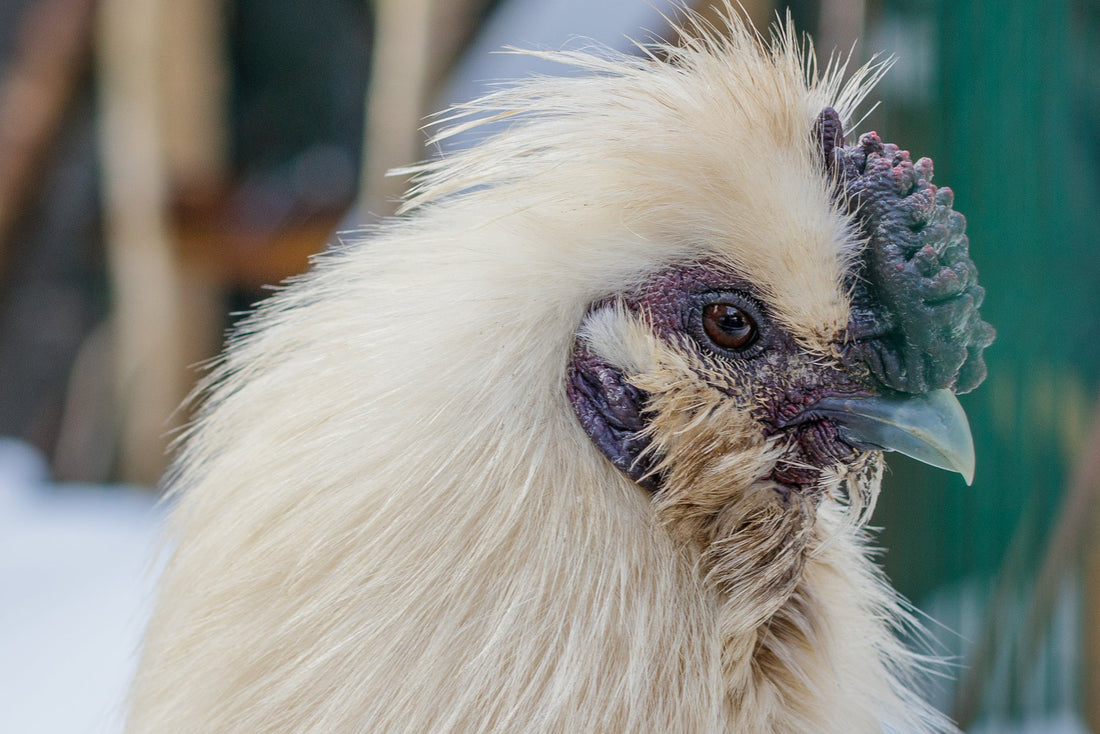As winter sets in and temperatures plummet, keeping chickens comfortable and healthy becomes a priority for poultry keepers in colder climates. Fortunately, there are several chicken breeds renowned for their resilience and adaptability to chilly weather conditions. From fluffy feathering to robust physiques, these cold-hardy breeds are well-suited to withstand the rigors of winter and thrive in frosty environments. Join us as we delve into the characteristics, care needs, and benefits of raising cold-hardy chicken breeds, ensuring a cozy coop and contented flock throughout the winter months.
Understanding Cold-Hardy Chicken Breeds
Cold-hardy chicken breeds are characterized by their ability to tolerate low temperatures and harsh weather conditions without adverse effects on their health or productivity. These breeds typically possess traits such as dense feathering, compact bodies, and robust constitutions that enable them to withstand cold climates with ease. Additionally, many cold-hardy breeds exhibit strong foraging instincts and adaptability to variable environmental conditions, making them well-suited for outdoor living in colder regions.
When selecting cold-hardy chicken breeds for your flock, consider factors such as breed size, egg-laying capacity, temperament, and suitability for your specific climate and management practices. Whether you're raising chickens for eggs, meat, or dual-purpose production, there's a cold-hardy breed to meet your needs and preferences.
Characteristics of Cold-Hardy Chicken Breeds
Cold-hardy chicken breeds exhibit a range of characteristics that make them well-suited for winter survival and productivity. These traits may include:
- Dense Feathering: Cold-hardy breeds often feature thick, insulating plumage that provides warmth and protection from the elements. Feathering extends to the legs and feet, minimizing heat loss and preventing frostbite in chilly conditions.
- Compact Build: Many cold-hardy breeds have compact, muscular bodies that conserve heat more effectively than larger, leaner breeds. Their sturdy physiques help them maintain body temperature and withstand cold temperatures without excessive energy expenditure.
- Docile Temperament: Cold-hardy breeds are often known for their calm and amiable demeanor, making them easy to handle and manage in a variety of environments. Their relaxed disposition contributes to reduced stress levels and overall well-being, particularly during colder months.
Care Needs for Cold-Hardy Chicken Breeds
While cold-hardy chicken breeds are naturally equipped to thrive in chilly climates, proper care and management are essential to ensure their health and welfare during winter. Here are some key considerations for caring for cold-hardy chicken breeds:
- Insulation and Shelter: Provide adequate insulation and shelter in the coop to protect chickens from cold drafts and moisture. Ensure the coop is well-ventilated to prevent condensation buildup and respiratory issues while maintaining warmth and comfort.
- Bedding and Litter: Use deep bedding such as straw, hay, or wood shavings to provide insulation and warmth on the coop floor. Regularly refresh bedding to maintain cleanliness and prevent moisture buildup, which can lead to frostbite and respiratory ailments.
- Access to Water: Ensure chickens have access to fresh, unfrozen water at all times. Use heated waterers or insulated containers to prevent water from freezing in cold temperatures, as dehydration can occur quickly in winter weather.
Popular Cold-Hardy Chicken Breeds
Several chicken breeds are renowned for their cold-hardy characteristics and suitability for colder climates. Some popular cold-hardy breeds include:
- Rhode Island Red: Known for their hardiness, productivity, and vibrant plumage, Rhode Island Reds are excellent layers and well-adapted to cold climates.
- Plymouth Rock: With their sturdy build and dual-purpose capabilities, Plymouth Rocks are valued for their cold tolerance, docile temperament, and consistent egg production.
- Wyandotte: Wyandottes are prized for their lustrous plumage, compact bodies, and cold-hardy nature, making them a popular choice for backyard flocks in chilly regions.
- Silkies: Despite their delicate appearance, Silkies are surprisingly cold-hardy and well-adapted to colder climates. Their dense, downy feathering provides excellent insulation against the cold, allowing them to withstand frosty temperatures with relative ease.
Benefits of Raising Cold-Hardy Chicken Breeds
Raising cold-hardy chicken breeds offers numerous benefits for poultry keepers in colder climates. These advantages may include:
- Winter Egg Production: Cold-hardy breeds often continue laying eggs throughout the winter months, providing a valuable source of fresh eggs when production declines in other breeds.
- Reduced Heating Costs: Cold-hardy breeds require less supplemental heating in the coop compared to less cold-tolerant breeds, resulting in lower energy costs and greater efficiency in winter management.
- Enhanced Survival Rate: Cold-hardy breeds have higher survival rates and lower susceptibility to cold-related health issues such as frostbite, respiratory ailments, and hypothermia, reducing mortality rates in winter.
Embracing Cold-Hardy Chicken Breeds
In colder climates, selecting cold-hardy chicken breeds is essential for ensuring the health, comfort, and productivity of your flock year-round. By understanding the characteristics, care needs, and benefits of cold-hardy breeds, poultry keepers can create a supportive environment that enables chickens to thrive in chilly conditions. Whether you're a novice or experienced poultry keeper, incorporating cold-hardy breeds into your flock offers resilience, sustainability, and peace of mind as you navigate the challenges of winter weather. With proper care and management, cold-hardy chicken breeds will reward you with robust health, hearty egg production, and enduring companionship throughout the frosty seasons.

